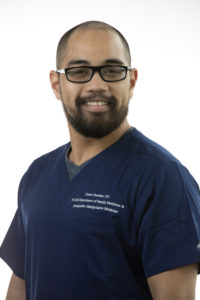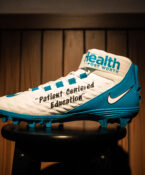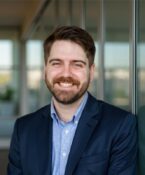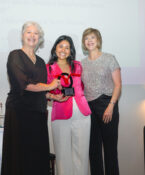Whole Health focus: Metabolic and Longevity Clinic
This article is part of a series highlighting whole health initiatives on HSC’s campus.
 In December, The University of North Texas Health Science Center at Fort Worth’s Clinic, HSC Health, launched the Metabolic and Longevity Clinic. This specialty clinic is for patients who have metabolic diseases such as obesity, diabetes, high blood pressure and more. Those who do not have metabolic diseases but are interested in prolonging the longevity of their active, healthy years of their lives or improving athletic performance are welcome to visit the clinic as well.
In December, The University of North Texas Health Science Center at Fort Worth’s Clinic, HSC Health, launched the Metabolic and Longevity Clinic. This specialty clinic is for patients who have metabolic diseases such as obesity, diabetes, high blood pressure and more. Those who do not have metabolic diseases but are interested in prolonging the longevity of their active, healthy years of their lives or improving athletic performance are welcome to visit the clinic as well.
The clinical experts at this clinic recognize the health of their patients as more than just lab results and medication. Health is the entire patient – they are more than just their symptoms and deserve more than medication to get them by.
When diagnosing a metabolic disease like type 2 diabetes, hypertension or fatty liver disease, doctors most often turn to medication to manage the symptoms – after all, prescribing medication to patients is part of the job of a doctor. For Dr. Dante Paredes, a physician at the Metabolic and Longevity Clinic, that is not the case.
Paredes is a firm believer in working to heal his patients by focusing on the entire body, rather than prescribing medications to manage symptoms. He believes that once medication is involved, patients become dependent on the medical system instead of learning how to take charge of their own health. Oftentimes, patients come to Paredes after they’ve been diagnosed with a metabolic condition, hoping he can aid them in regaining control of their health.
“I figure if I can’t be the person training them to prevent these diseases, I can at least be the one to help them bounce back and get back to their life,” Paredes said.
Developing a metabolic disease is most often caused by physical inactivity, an unhealthy diet or obesity. In order to improve the health of patients, Paredes has to focus on correcting those habits – teaching patients to live an overall healthier lifestyle that will ultimately lead to reversing the metabolic disease.
“Life is physically and mentally rigorous enough that we almost need an ‘athletic mindset’ to maintain some level of independence,” Paredes said. “What I do is train my patients to eat and exercise in a way that supports their physical and mental development, regardless of whether they are in a sport or not.”
For patients who have been diagnosed with any form of metabolic disease, reversing the disease without medication is more than just changing their diet. They have to focus on all aspects of their health, treating their body as a whole, not just as a single symptom.
A Whole Health Approach to Type 2 Diabetes
Paredes teaches his patients how to walk toward the “good life” by reimaging their physical activity, their diet and overall lifestyle. One patient group he is working with to help reach that “good life,” are those with type 2 diabetes.
The team at the Metabolic and Longevity Clinic works tirelessly to give their patients the best outcome possible, this devotion has led them to figure out how to reverse type 2 diabetes.
When it comes to a disease like type 2 diabetes, the only way to reverse it is to change lifestyle in a way that allows the entire body to heal and maintain after healing – without the need for medication.
“We spend the majority of our time teaching and coaching patients to use strategies like carbohydrate restriction and intermittent fasts in combination with some form of hardstyle kettlebell training to get their type 2 diabetes in remission,” Paredes said. “Remission means blood sugars are normalized after safely discontinuing their medications long term.”
The journey to getting a patient off long-term medications is not always an easy one, but for Paredes and his team, the end result always makes it worth it.
“The work is exhausting, but the emotion in the room when one of my patients finally gets off their last unit of insulin – or whatever medication they’re taking – is a feeling like no other.”
To learn more about Whole Health and how it impacts you visit: https://www.unthsc.edu/whole-health/






Social media